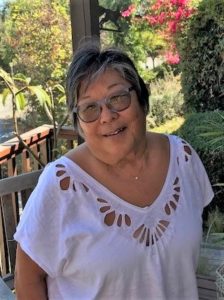Child welfare advocate, program trailblazer and social work training innovator

Kathy Kubota devoted her career to innovative work in the public sector as an advocate for children and active leadership in the advancement of her profession. Even while working towards her MSW at UCLA, where she had also earned her bachelor’s degree, she knew that her focus would be on children’s services. That goal was cemented after an independent study with Jeanne Giovanonni in which Kubota learned about the dearth of services for African-American children. Only six years after her graduation in 1982, she got the opportunity to tackle that issue when she was named chief of Los Angeles County’s adoption division.
Before assuming that role, Kubota’s first jobs as a newly minted social worker were as a direct provider with what is now the L.A. County Department of Children and Family Services and as a volunteer therapist with the Child Sexual Abuse Project, the first program of its kind in the area. There she provided group therapy for non-offending parents in the evenings and attended training sessions, all on top of her full-time work for the county.
In 1987, Kubota became project director of the Runaway Adolescent Pilot Project (RAPP), a program that had been near collapse when she took over. Its mission was to identify and secure services for the growing number of homeless young people in Hollywood. At a time when agencies were competing for funds and reluctant to work together, Kubota cultivated a productive partnership with Children’s Hospital Los Angeles’ program for high-risk youth to coordinate services for this population. Under Kubota’s leadership, RAPP received awards from the National Association of Counties and the National Council of Juvenile and Family Court Judges in recognition of the program’s effectiveness.
When she became adoptions chief in 1988, Kubota used the same creative, collaborative approach to begin to address the inequities in the child welfare system that particularly affected children of color. She was instrumental in the creation of the Inter-University Consortium on Child Welfare, now the University Consortium for Children and Families, and was named its first director in 1991. Two years later, she became L.A. County DCFS Director of Governmental Relations, where she effectively oversaw the agency’s broad child welfare agenda. Among her many successes: preventing crucial Title IVE funds from being block-granted to states and streamlining home studies for some adoptions and foster care placements.
Kubota was an active member of the California chapter of NASW, serving as its president in 1997-98. She established the organization as a training provider and initiated training for social workers as mandated reporters of child, elder and dependent adult abuse. In all her professional activities, she brought together diverse and even competing organizations to address their shared social work goals.